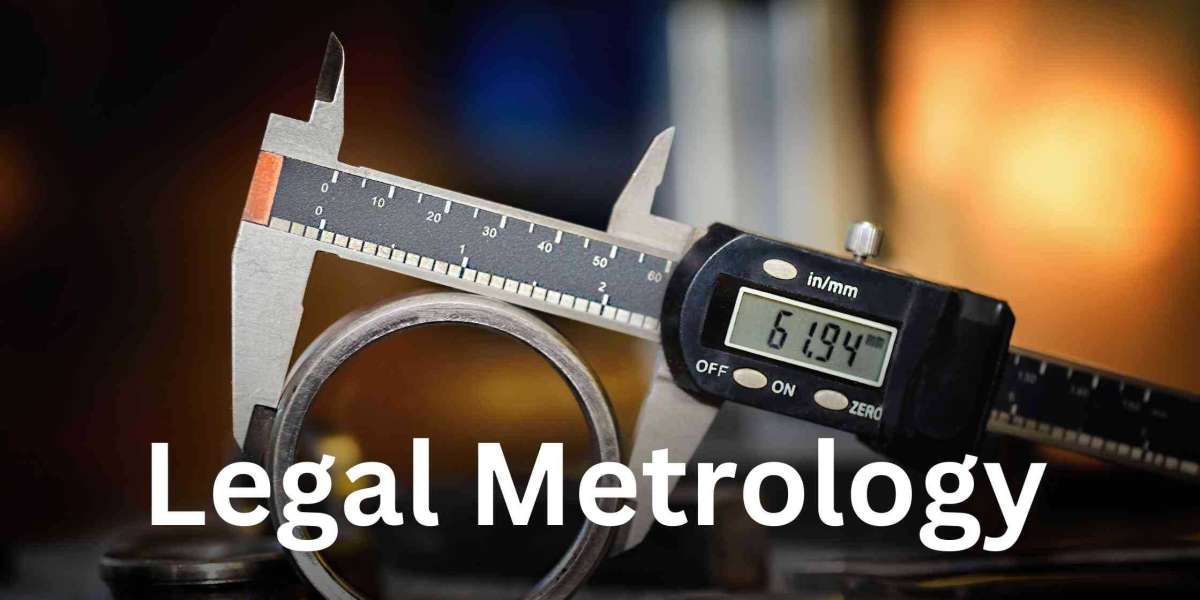In today’s global market, accuracy and trust play a crucial role in the success of any business, especially in manufacturing and trade. One area that ensures both accuracy and trust is legal metrology. Legal metrology involves the regulation and control of measurements and measuring instruments used in trade and industry. This system of measurement regulation impacts how businesses operate and how consumers trust the products they buy.
In this blog, we will explore why legal metrology is essential in the world of manufacturing and trade, and how it benefits both businesses and consumers. We will also highlight important aspects such as legal metrology registration, legal metrology dealer license, legal metrology manufacturer license, legal metrology repairer license, LMPC certificate in India, and the model approval certificate for weights and measures.
What is Legal Metrology?
Legal metrology refers to the application of legal requirements to measurements and measuring instruments. It ensures that all measuring instruments like weighing scales, meters, and other devices used in trade and industry are accurate and reliable. These measurements are essential because they directly affect how products are made, sold, and consumed. In India, the Legal Metrology Act, 2009 governs this area, making it mandatory for businesses to comply with its regulations. Businesses engaged in manufacturing, importing, or dealing with measuring instruments need to obtain licenses such as the legal metrology dealer license, legal metrology manufacturer license, and legal metrology repairer license.
The Role of Legal Metrology in Manufacturing
Manufacturing relies heavily on accurate measurements. From raw materials to finished products, measurements are used at every step of the production process. Let’s look at some of the key areas where legal metrology plays a role in manufacturing:
- Ensuring Accurate Measurements in Production
Legal metrology ensures that every component and material is measured accurately during manufacturing. Whether it is the weight of raw materials or the dimensions of a product, precision is critical to maintain the quality and standard of the product. Any error in measurement can result in product defects, increased costs, and waste. - Quality Control
Accurate measurements are also important for maintaining consistent product quality. If a company produces goods without accurate measurements, there could be variations in the quality of its products. Legal metrology ensures that the production process adheres to the highest standards, reducing errors and improving quality control. - Cost Efficiency
By ensuring precise measurements, legal metrology helps businesses minimize waste and optimize the use of raw materials. Accurate measurements prevent overuse or underuse of materials, which in turn reduces production costs and increases profitability. - Safety and Compliance
In industries such as pharmaceuticals, food, and chemicals, precise measurements are not only a matter of quality but also safety. Incorrect measurements in these sectors could result in harmful products being released into the market. Legal metrology helps ensure that manufacturers comply with safety regulations, preventing potential risks to consumers. For businesses involved in imports, obtaining the LMPC importer license (Legal Metrology Packaged Commodities) is essential to ensure compliance with regulations governing packaged goods.
The Role of Legal Metrology in Trade
In trade, measurements directly affect the price, quality, and quantity of products sold. Whether it's a supermarket selling packaged goods or a fuel station selling gasoline, accurate measurements are essential for fair trade practices. Legal metrology ensures that both buyers and sellers are protected through accurate measurements. Let’s explore how it impacts trade:
- Fair Trade Practices
Legal metrology promotes fairness in trade by ensuring that goods are measured accurately when sold. For example, when a customer buys 1 kilogram of rice or 10 liters of petrol, legal metrology ensures that the customer receives the correct amount. This prevents fraud and builds trust between businesses and consumers. - Building Consumer Confidence
One of the most important aspects of any business is consumer trust. When consumers know that the products they buy are measured accurately and fairly, they are more likely to return and buy again. Legal metrology provides consumers with confidence that they are not being cheated, whether in weight, quantity, or volume. Accurate packaging is crucial here, and businesses dealing in packaged commodities must obtain packaged commodity registration to comply with regulations. - International Trade and Exports
Legal metrology also plays an important role in international trade. Many countries have strict regulations regarding measurements. If a business wants to export its products, it must comply with the legal metrology standards of the importing country. For instance, certain products require a model approval certificate for weights and measures to meet international standards. Failure to comply could result in products being rejected at borders, causing significant financial losses. - Product Labeling
In addition to regulating weights and measures, legal metrology also ensures that product labels are accurate. This includes the weight, volume, or quantity stated on product packaging. Accurate labeling is important for consumer protection and also for meeting legal requirements. Inaccurate labels can lead to fines, legal action, and damage to a company’s reputation.
Legal Metrology Compliance: Why It’s Crucial for Businesses
Compliance with legal metrology is not optional; it is a legal requirement for all businesses that use measurements in their operations. Non-compliance can result in severe penalties, including fines and imprisonment, depending on the nature of the violation. Here are some reasons why compliance is essential:
- Avoiding Penalties
Businesses that fail to comply with legal metrology regulations may face legal consequences, including hefty fines and penalties. In some cases, non-compliant businesses may also face product recalls, which can be costly and damaging to a company’s reputation. Ensuring compliance through proper legal metrology certificate registration is crucial to avoid these issues. - Maintaining Business Reputation
Compliance with legal metrology regulations shows that a business is committed to fair trade practices and quality. This helps in building a strong reputation in the market. On the other hand, businesses that do not comply risk damaging their brand image and losing consumer trust. - Gaining Competitive Advantage
Businesses that comply with legal metrology regulations can gain a competitive edge in the market. They are more likely to win consumer trust and expand their market reach, both locally and internationally. Compliant businesses are also less likely to face disruptions due to legal or regulatory issues, ensuring smooth operations.
How to Ensure Legal Metrology Compliance
Ensuring compliance with legal metrology regulations involves several steps. Here’s what businesses can do:
- Register under the Legal Metrology Act
Businesses that deal with weights and measures must register under the Legal Metrology Act. This includes manufacturers, dealers, and importers of weighing and measuring instruments. Registration ensures that the business is recognized by the government as compliant with legal metrology laws. Applying for licenses such as the legal metrology dealer license, legal metrology manufacturer license in India, and legal metrology repairer license is an important step in this process. - Use Verified and Approved Instruments
All measuring instruments used in trade must be verified and approved by legal metrology authorities. These instruments should be regularly calibrated and tested to ensure accuracy. For products involving specific measurements, businesses must secure the model approval certificate for weights and measures to comply with legal standards. - Keep Records
Businesses must maintain proper records of their measuring instruments, including verification certificates and calibration reports. These records are important for proving compliance during inspections. - Educate Employees
It is essential to train employees on the importance of legal metrology and how to properly use measuring instruments. This will help in ensuring that measurements are accurate at all times.
Conclusion
Legal metrology plays a vital role in both manufacturing and trade by ensuring accurate measurements, promoting fairness, and building consumer trust. For businesses, compliance with legal metrology regulations is not only a legal requirement but also a way to enhance their reputation, avoid penalties, and gain a competitive edge. In a world where precision and trust are key to success, legal metrology ensures that businesses and consumers can rely on the accuracy of every measurement.
By prioritizing legal metrology compliance—through proper legal metrology registration, obtaining the LMPC importer license, and ensuring accurate labeling through packaged commodity registration—businesses can contribute to fair trade practices and maintain high standards in their operations, ultimately benefiting both the market and society at large.








